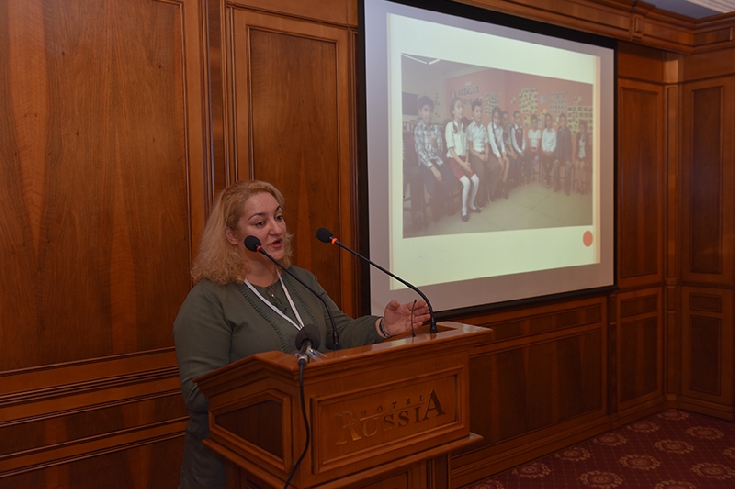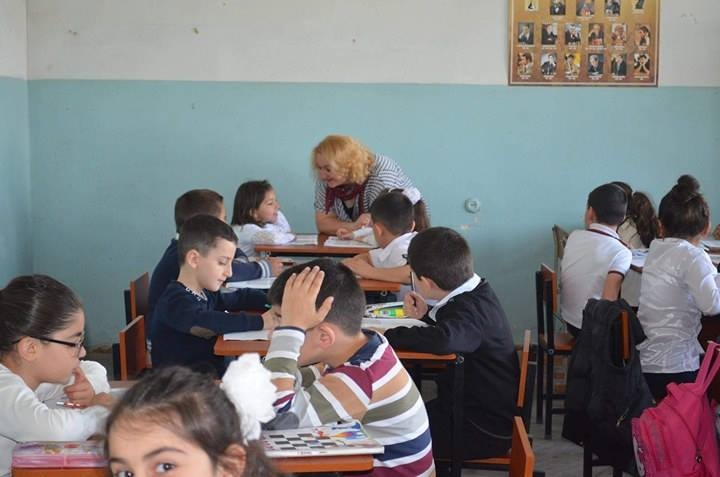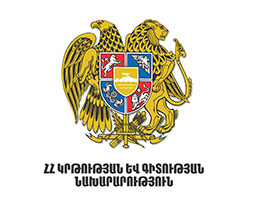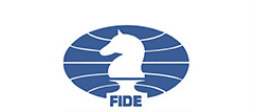
 ChessAcademy.am
ChessAcademy.am
Chess Impact on Pupils' Individual, Psychological Development: Surveys Carried out by the Psychologist of Chess Academy of Armenia
 For a comprehensive review of “Chess in Schools” project, we consider it necessary to refer to the research carried out by psychologists. To this end, we talked to Karine Khoodabakhshyan, psychologist of the National Institute of Education and the Chess Academy of Armenia. She has from working at the National Institute of Education of the Ministry of Education and Science of RA since 2007, and in 2011 she was sent to Chess Academy of Armenia, along with a few other psychologists, to explore possible ways of future joint cooperation.
For a comprehensive review of “Chess in Schools” project, we consider it necessary to refer to the research carried out by psychologists. To this end, we talked to Karine Khoodabakhshyan, psychologist of the National Institute of Education and the Chess Academy of Armenia. She has from working at the National Institute of Education of the Ministry of Education and Science of RA since 2007, and in 2011 she was sent to Chess Academy of Armenia, along with a few other psychologists, to explore possible ways of future joint cooperation.
As firstly noted by Mrs. Khoodabakhshyan, the aim of the educational system is the following: to promote creation of an educated, intelligent, thoughtful society. In order to achieve this goal, educational systems are being constantly innovated and developed. In the recent 25 years educational programs have been changed and innovated in Armenia and these changes are intended to contribute to the intellectual development of the upcoming generation. Chess was included in the school curriculum in order to help the younger pupils to shape and develop thinking, logic, analysis ability as well as visual thinking in an easy and interesting way. So to the following factors were given importance in the process of CIS program implementation:
- The creation of educational materials
- Awareness and training of teachers
- Equipment of special chess classrooms (special desks, chess pieces, chessboards, demonstration boards, etc.).
- Awareness from family, especially parents, and society of the process and goals of the CIS program
At the first stage of the long-term work carried out by the psychologists, a group 5 specialists engaged in research in the field of chess. Psychologists set a goal to test the second grade school chess textbook which were being used in elementary schools of Armenia.
The first challenge that faced the specialists during “Chess in schools” program’s implementation was that they had to work with pubic to change their attitude about chess so that they could perceive it not only as a game, but also as a school subject that was going to be taught in elementary schools along with other subjects. In order to make a positive change in the field, psychologists tested chess textbooks in two different ways. In one case, chess was being taught by an experienced teacher and in the other case, it was taught by a specialist who had enough knowledge of chess but no pedagogical experience and for whom chess was firstly perceived not as a school subject but as a game. And, as experts predicted, teachers with no pedagogical experience were having difficulties with the proper selection of teaching methods. The main goal of the psychologists was to organize trainings with teachers who did not have pedagogical experience to try to help them to obtain appropriate pedagogical skills.
It was useful to find out that in case of an experienced teacher the learning process was productive even in the presence of 40 students, and in case of a teacher with no pedagogical experience, there were visible considerable difficulties even if the class consisted of 15-20 pupils. In order to overcome this problem, psychologists were attending chess classes and were discussing the difficulties to organize the teaching process in a more effective way. These activities lasted two and a half months and during this period, a large number of chess teachers gained the knowledge how to communicate with elementary school children easily.
The next step carried out by psychologists was the implementation of teacher’s training program. This was a quite complicated and time-consuming work because chess as a school subject required a special approach. The psychologists had only very short period of time to train chess teachers and provide them with the knowledge of main principles of teaching. For the effective management of this process, a special training program was developed which included all the material needed. In addition to the training program was a published handbook that was designed for chess teachers to serve as a guidebook to organize process of learning in an easy and effective way.

A large number of teachers participated in training courses, and the results showed that training had an enormous positive impact on the preparation of teachers who previously had no pedagogical experience. The trainings lasted 3 days and on the fourth day an examination test was held, aimed at checking the knowledge and professional, psychological and pedagogical skills of future teachers acquired as a result of training. Experts who successfully passed the test were given the right to teach chess for up to 3-years period of time, depending on the results of the tests. These training courses are still operating and are carried out 4 times a year. In addition to training, consultations are also being organized twice a year in Yerevan and in all regions of Armenia and Artsakh with the purpose of discussing issues arising during chess teaching process.
The psychologists have been carrying out different research studies since the very beginning of “Chess in schools” program implementation. The first research was launched in 2011 and implemented in the 2012-2013 academic year. A questionnaire was designed to find out opinions of chess teachers on the subject, as well as their approach to the idea to include chess in school curriculum. The questionnaire also gave the professionals an opportunity to share their concerns and suggestions regarding chess teaching and its efficiency. The importance of this study is that it helped to reveal the attitude of teachers towards chess which was of a great importance in the sense that the success of teaching was largely determined by teacher’s factor.
In addition to the survey, which allowed us to find out the teachers' opinion, researchers also made another very important study exploring parents' attitude towards chess. Initially, there were parents who were sure that elementary school program was subject to frequent changes and sometimes unreasonably this or that subject was being included in the elementary school curriculum. In this regard, there was a need to assure parents that chess is not a randomly selected subject. We needed to inform parents that the main goal of chess as a part of educational system is the enhancement of pupils' thinking and learning skills.
Mrs. Khoodabakhshyan highlighted the fact that in her experience over five years, she noticed that different groups of society have positively changed their opinion about chess as a component of general education. Mrs. Khoodabakhshyan mentioned in her speech that in the initial period of program implementation there were sometimes cases where, for example, parents noted that they did not see the need to study chess, especially in case of girls. However, over the years, as a result of the consistent work carried out by experts, the mentality and the attitude amongst parents changed. This can be considered as an important achievement. In the 2015-16 academic year, meeting discussions were held in a specific format where the teacher, psychologist and the representative of the school directorate took part. Due to these meetings, teachers were obtaining the skill on how to communicate not only with elementary school children but also with their parents. During the meetings with parents, the latter were asked to complete a questionnaire consisting of 16 questions. The questions were the following:
- Select the sex of the child,
- The child's age,
- The grade,
- Does anyone else play chess in your family besides the child?
- Does the child attend private training besides the school curriculum?
- In your opinion, what is the main goal of chess teaching?
- .....etc.
The above mentioned questionaire was completed two times: before and after the discussion with the psychologists. When we summed up the results, it turned out that the results of questionnaires completed by parents were totally different i.e. the meeting-discussions had their positive impact on the formation of public opinion about chess. This fact comes to prove that awareness campaigns done by the psychologists are very productive. It is important to note that studying chess develops a number of personal qualities such as independence, willpower, ability to calculate your own actions, as well as the spirit of competition. It also helps children to make right decisions, to recognize their own personal capacities and to develop their time management skills. Chess makes the person self-confident, but not haughty.
As a summary of the conversation, Karine Khoodabakhshyan also stressed that the only problem regarding "Chess in Schools" program implementation in the future is the lack of qualified teachers. If over the next two years we can achieve the result that 80 percent of the specialists who teach chess are pedagogues-chess players, we will be able to double our achievements in the field of chess. The characteristic features of a good teacher of chess should be patience, skills of effective communication with pupils, fair assessment, self-confidence, etc.
There is also a need for continuous implementation of the parents' awareness campaigns, because, though it has already been 5 years since chess is a part of the school curriculum, there are still parents who do not understand clearly the mission of chess as a part of public education and do not realize the positive impact that chess can have on child's development. Due to hard work of psychologists parents’ attitude towards chess have been gradually changing, and will continue to change.
By Tatev Khachatryan




